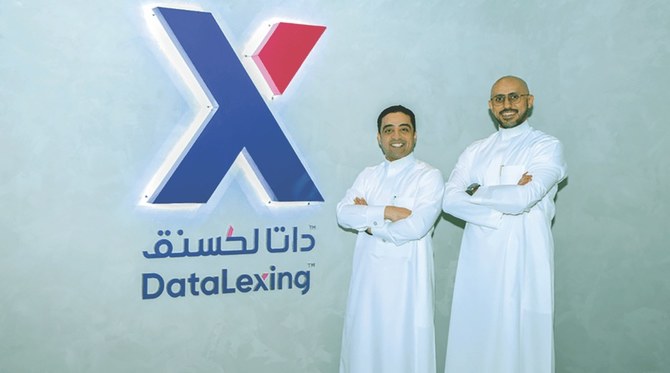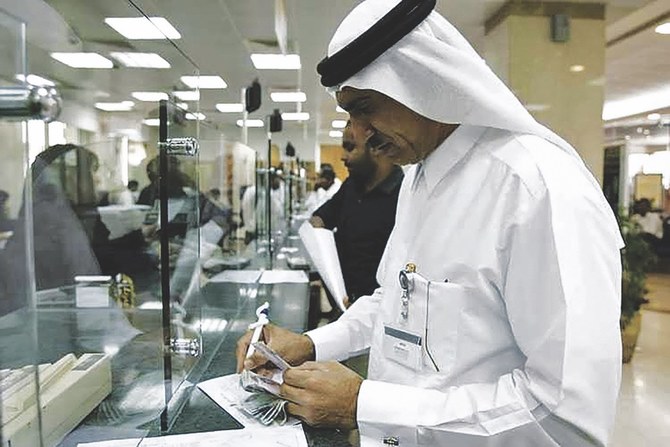CAIRO: The UAE-based fintech startup Qashio raised $10 million in a seed funding round using equity and non-equity investments to accelerate expansion into Saudi Arabia.
Established in 2021, the company enables businesses to gain full visibility and control over their expenses through its spend management platform. In addition, it claims to be the first fintech company in the UAE to issue corporate employee cards.
“Saudi Arabia is making great efforts to align with its Vision 2030 by taking fintech-friendly approaches and bringing more fintech firms into the market. At Qashio, we are proud to be an integral part of propelling a cashless society in the UAE and now Saudi Arabia,” Armin Moradi, CEO and co-founder of Qashio, said in a statement.
The company already serves clients in the UAE and Saudi Arabia but will use its acquired funding to accelerate further customer acquisition and market presence in the Kingdom.
“This round of funding will help us expand hiring and growth into Saudi Arabia and other parts of the GCC and accelerate the execution of the product roadmap. We are excited for the days ahead,” chief product officer and co-founder Jonathan Lau said in a statement.
The round saw participation from venture capitalists One Way Ventures, MITAA, Cadorna Ventures, Sanabil 500 MENA, Nuwa Capital, Iliad Partners and Phoenix Investments.
Data is the new oil
Saudi Arabia-based data platform DataLexing raises $3 million in a seed funding round led by Sadu Capital with participation from Impact46 and other investors.
Founded in 2018 by Rayan Al-Faheid and Abdulelah Al-Ganas, the company offers organizations and individuals to acquire data without relying on technical personnel and gathering insights, apps, notifications, forms, and sheets in one place.
“The link between data and centralized reporting usually goes through different applications, platforms, data engineers, and multiple integrations. That wastes business users’ time and effort to produce a report on time and even with questionable accuracy,” Salem Washeely, managing director at Sadu Capital, said in a statement.
He further explained that DataLexing managed to bridge the gap for clients locally and globally by creating a hassle-free solution.
The company plans to utilize its funding round to expand into Gulf Cooperation countries and develop its product further.
Educating the youth
Saudi Arabia’s educational technology firm Jeel secured $1.1 million in a seed funding round led by Egypt-based venture capital firm EdVentures.
Founded in 2020 by Ahmed Sobaih, the company educates pre-schoolers through its edutainment platform, which contains learning content prepared by psychologists and educators.
EdVentures offers incubation, acceleration, and investment programs for startups to boost the ed tech sector, which hosts over 1,500 companies in the Middle East and North Africa.
Full spectrum of pharmaceuticals
Egypt-based B2B marketplace Grinta raised $8 million in a seed funding round co-led by Raed Ventures and Nclude alongside Endeavor Catalyst and 500 Global.
Established in 2021 by Mohamed Azab, Yosra Badr, Ali Youssef and Hamza Mohamed, Grinta provides pharmacies with a full range of pharmaceutical and medical products from vendors through its B2B platform.
“As we plan to expand our footprint in the main Pharma hubs on the continent, we will also enable Egyptian and regional Pharma manufacturers to further penetrate the $50 billion African market,” Azab, CEO of Grinta, said in a statement.
FASTFACTS
• Saudi Arabia’s educational technology firm Jeel secured $1.1 million in a seed funding round led by Egypt-based venture capital firm EdVentures.
• Egypt-based B2B marketplace Grinta raised $8 million in a seed funding round co-led by Raed Ventures and Nclude alongside Endeavor Catalyst and 500 Global.
The company plans to increase its market presence in Egypt and utilize its funding to enhance its tech platform and expand its team.
Since its inception, Grinta has been present in seven governates in Egypt, with over 14,000 registered pharmacies, 20,000 product offerings, and more than 100,000 delivered orders.
A Phoenix Star
UAE-based gaming platform Fenix Games secured an investment mega-round of $150 million led by Phoenix Group and Cypher Capital.
The company, founded this year, aims to boost blockchain games in the region by acquiring, investing, and creating a publishing platform of the future.
The company believes blockchain gaming is heading toward consolidation, where large corporations will acquire and invest in strong startups.
“We plan to acquire, invest, publish, and operate in select cases games and studios. We will have a few hundred million to deploy to execute our strategy,” Chris Ko, CEO and co-founder of Fenix Games, said in a statement.
He added that the company is tackling a structural gap by redefining publishing groups to leverage traditional publication but with new and innovative functionality.
Fenix Games aims to combine the skills of its team in publications and product management to provide publishing services to all game models, which include premium, free-to-play, and blockchain gaming across all platforms.
“The infrastructure, tools and support just do not exist. We believe there is an opportunity for the role of publishing to elevate its role in the gaming ecosystem,” Ko added.
















